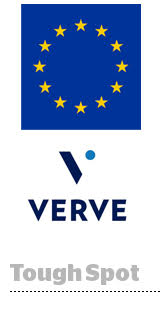
Just two years after entering Europe, Verve is shutting down its European operations rather than tangle with the General Data Protection Regulation.
The company, which runs a mobile marketing platform powered by location data, confirmed to AdExchanger that it is closing its London and Munich offices and laying off around 15 employees on May 11. The news was first reported by The Drum.
Although a “variety of factors played into our decision,” Verve CMO Julie Bernard told AdExchanger in an email, GDPR is a biggie.
“We have decided that the regulatory environment is not favorable to our particular business model,” she wrote. “We are focusing efforts on the strength of our US business as this time.”
Verve isn’t the only ad tech company to roll up its carpet in Europe. In March, AdExchanger learned that cross-device platform Drawbridge is putting the kibosh on its EU ad business rather than face the compliance headache.
When GDPR takes effect on May 25, companies will need legitimate interest to process a European citizen’s data. One form of legitimate interest is informed and affirmative opt-in consent – something most location companies don’t have.
The challenge for location data companies is that under GDPR, anything that can be used to identify a person is considered personal data, including location data and mobile device IDs.
Verve derives most its location data through a software development kit (SDK) integrated into its publisher partners. All the data collected is associated with a device ID. The SDK allows publishers to monetize their apps through Verve’s network of advertisers.
The company claims to have robust permissions due to its direct connection to the publisher. “Our business model has always prioritized quality, first-party data secured with consumer consent,” Bernard said.
Even so, it’s a major question for location data companies whether consumers realize what they’re opting in to when they tap “allow” or “OK” after downloading an app or are aware that third parties are collecting their information.
Verve clearly doesn’t want to risk it in Europe.
Bernard said the company is experiencing growth in its enterprise platform business, which it plans to “continue to fuel” with “various investments.” Mark Fruehan, a former Opera Mediaworks (now AdColony) exec, joined Verve this month to lead that part of the business, including drumming up demand for Verve’s programmatic and indoor location products.
But Verve has had a turbulent few years of ups and downs.
The company cycled through a number of top executives, including Nada Stirratt, who left two years ago to join Facebook as a VP. The following year, Verve quietly cut 7% of its US employees. Verve has raised $35 million in direct funding since 2007, plus a $30 million debt financing package in 2016.
This post was syndicated from Ad Exchanger.

More Stories
NBCUniversal and Jeep Rev Up a Partnership For The Real Housewives of Beverly Hills Reunion
Peter Thiel-backed AI Startup Sentient Pitches Itself More Transparent than OpenAI and Perplexity
Mark Read’s Pay Hit, DEI Silence, and Other Key Takeaways from WPP’s Annual Report